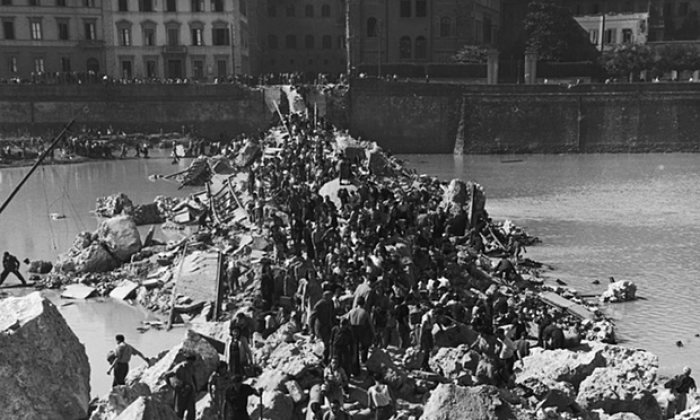"There is no such thing as historical fact." So writes Esmond Lowndes, hero and occasional narrator of Alex Preston's rich and evocative third novel, In Love and War, in his own historical novel-within-a-novel, which bears the same title. It's not a particularly original observation, but Esmond is not a particularly original thinker at the beginning of the book, despite his literary aspirations. Preston's In Love and War is a complex collage of texts following the story of Esmond's journey from dreaming ingénu in 1937 Florence to hardened resistance fighter during the Nazis' last stand in 1944.
Esmond is sent to Italy at 20 by his father, the chairman of the British Union of Fascists, to set up a radio station intended to repair Anglo-Italian relations by broadcasting fascist propaganda alongside culturally improving discussions to the English community. For Esmond, this amounts to a banishment, to avoid the scandal of an affair with another boy which saw him sent down from Cambridge. Life among the expats in 1937 is still privileged, a small outpost of Empire, though Blackshirts prowl the streets and there are flashes of brutality, mostly at the hands of Mario Carità, head of the city's secret police...

